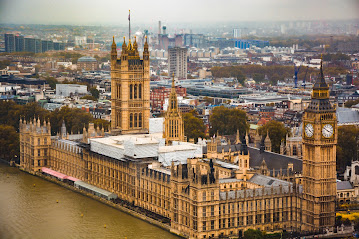The Role of Social Media in Shaping UK Politics: Pros and Cons
In today's digital age, social media has become an integral part of our daily lives, transforming the way we communicate, share information, and engage with others. Its impact on various aspects of society, including politics, cannot be underestimated. In this blog post, we will delve into the role of social media in shaping UK politics, exploring both the advantages and drawbacks it brings to the political landscape.
Pros of Social Media in UK Politics
Accessible Political Information
Social media platforms provide a vast amount of information about political parties, candidates, and their policies, making it easier for citizens to stay informed and engaged in political discourse. Users can follow official party accounts, politicians, and news outlets, gaining access to real-time updates and analysis.
Democratic Participation
Social media allows citizens to participate actively in political discussions, express their opinions, and engage with policymakers. It provides a platform for individuals to voice their concerns, mobilise support for causes, and hold elected officials accountable. It empowers citizens, especially the younger generation, to have a say in political matters.
Enhanced Political Awareness
Social media acts as a catalyst for raising political awareness among individuals who may have previously been disengaged from politics. Through user-friendly interfaces, engaging content, and shareable information, social media makes politics more accessible and approachable for a wider audience, encouraging political literacy and informed decision-making.
Grassroots Movements and Activism
Social media has facilitated the growth of grassroots movements and activism in the UK. Online platforms have played a pivotal role in organising protests, campaigns, and demonstrations, amplifying marginalized voices and promoting social change. It has enabled individuals to rally behind causes they care about and challenge the status quo.
Cons of Social Media in UK Politics
Spread of Misinformation
The rapid spread of information on social media can also lead to the dissemination of false or misleading content. Fake news, rumours, and misinformation can quickly go viral, impacting public opinion and distorting the political landscape. This poses challenges to the integrity of political debates and the ability of citizens to make well-informed decisions.
Filter Bubbles and Echo Chambers
Social media algorithms often prioritise content based on user's preferences and past interactions, leading to the formation of filter bubbles and echo chambers. This can result in individuals being exposed only to like-minded opinions, reinforcing existing biases and limiting the diversity of perspectives. It may hinder healthy political dialogue and understanding among different groups.
Online Harassment and Polarization
Social media platforms can become breeding grounds for online harassment, trolling, and toxic behaviour. Political discussions on social media often devolve into polarised debates, where personal attacks and hostile rhetoric prevail. Such an environment can discourage constructive dialogue and hinder meaningful engagement with opposing viewpoints.
Influence of Foreign Interference
Social media platforms have faced scrutiny regarding the potential influence of foreign actors in shaping political narratives. The dissemination of disinformation campaigns and the manipulation of public opinion through social media have raised concerns about the integrity of the democratic process and the vulnerability of citizens to external influences.
Conclusion
Social media has undeniably transformed the landscape of UK politics, providing both opportunities and challenges. While it enhances accessibility, democratic participation, and political awareness, it also presents risks such as misinformation, filter bubbles, and online harassment. As citizens, it is crucial to approach social media with critical thinking and media literacy skills, verifying information and engaging in respectful dialogue.
To harness the benefits of social media in shaping UK politics, policymakers, social media platforms, and citizens must work together to promote transparency, combat misinformation, and foster a culture of respectful and inclusive political discourse. By leveraging the strengths of social media while addressing its drawbacks, we can strive for a more informed, engaged, and democratic political landscape in the UK.
Remember, social media can be a powerful tool, but it is essential to use it responsibly and critically evaluate the information we encounter. Let's embrace the potential of social media in shaping UK politics while being mindful of its impact on our democratic processes.
Spec






Comments
Post a Comment